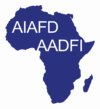May 11, 2022

Derivatives have an important role to play in the development of capital markets in emerging and developing jurisdictions and in enabling a wide range of their end users to better manage the business and financial risks they are exposed to in their normal course of business.
This paper seeks to help policymakers in emerging and developing markets establish an appropriate framework to ensure safe and efficient derivatives activity. It outlines the key elements – legal, regulatory and risk management – that policymakers should consider. In doing so, it draws on previous work by global standard setters, regulators and supervisors in advanced economies, as well as market participants and others, to identify issues and practices in these areas.
Importantly, the paper also discusses the relevant transposition of derivatives policies and rule sets developed by global policymakers and market participants in advanced economies to emerging and developing markets. There are, for example, some practices, laws and/or rules that are essential in every jurisdiction (eg, the legal certainty of derivatives transactions and the enforceability of netting agreements between counterparties). But it is also true that not every global rule set can or should be implemented in every jurisdiction (eg, a clearing mandate in a market with few transactions or with a closed currency).
For these reasons, it is important that a jurisdiction’s policy/regulatory framework be aligned and evolve with the development of its capital markets and derivatives activity to foster growth and enable access to prudent risk management practices.
